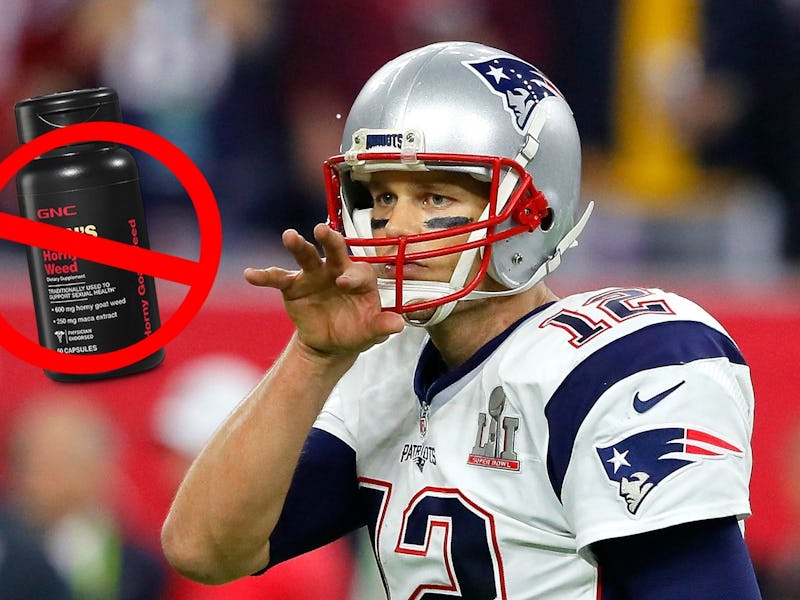While Justin Bieber and the Stranger Things kids were celebrating their triumphant Super Bowl ads, GNC slunk away, shamefaced. The notorious nutritional supplement brand had its Super Bowl commercial canned at the last minute, after the NFL realized it legally couldn’t endorse a brand that peddled substances the league itself had banned. GNC is pissed. But the NFL made the right call, and Americans are safer for it.
Professional football has a lot of questionable policies, but the NFL gets points for being consistent with its rules about banned substances. As USA Today reported, GNC is on the NFL’s list of “prohibited companies” because it has been “associated with the production, manufacture or distribution of NFL banned substances.”
Dozens of substances have been banned by the NFL, and the majority of them are anabolic or androgenic steroids, which are used for building muscle and body mass, or stimulants, which can improve energy and performance. These don’t just give players who use them an unfair advantage. They can also be dangerous: According to the National Institute on Drug Abuse, anabolic steroid abuse can lead to serious kidney, liver, and heart problems and an increase in the risk of stroke or heart attack, “even in young people.” Stimulants pose similar dangers to the heart, and they are addictive.
Also, anabolic steroids can make your balls shrink.
GNC’s success is largely built on its sales of products that are known among bodybuilders as “steroid alternatives.” It’s illegal for the company to sell actual anabolic steroids without a prescription, but it can sell products like GNC Pro Performance AMP Amplified Mass XXX and Optimum Nutrition Pro Complex Gainer, which promise weight gain and muscle growth effects similar to those of steroids.
But people who use these products are taking a huge risk: The company has been heavily criticized over the years for including untested, illegal, and potentially dangerous substances in its products, and it doesn’t always list them on the product label. In 2015, GNC was called out for including the Adderall-like substance BMPEA and the synthetic amphetamine-adjacent drug picamilon — both illegal — by the state of Oregon, which straight-up sued the company for doing it.
The most recent rendition of the NFL’s list of “Supplement Companies Associated With the Production, Manufacture, or Distribution of NFL Banned Substances” doesn’t include any particular GNC product among its 51 listings, but it does include GNC in a general list of supplement companies NFL players aren’t allowed to associate with, suggesting that the company has been blacklisted for products it sold in the past.
In light of the controversy, GNC has been trolling the NFL on Twitter, calling it the #NoFunLeague and thereby implying that illegal steroids and supplements are what constitutes fun. Their needling likely won’t last much longer; the company’s stock slid 65 percent over the past year, and on top of that, it spent $5 million buying 30 seconds of Super Bowl ad time that it never got to use. The Super Bowl debacle will likely just speed up its much-needed demise.
